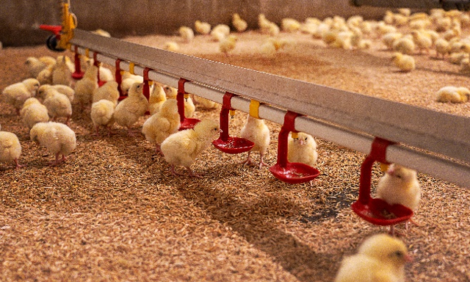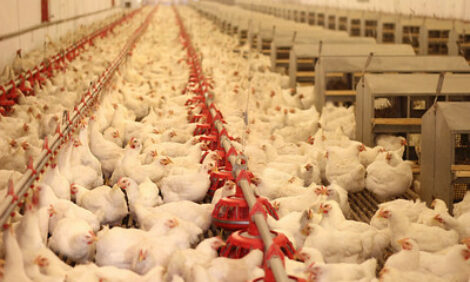



How Nigeria’s young poultry farmers are turning the problem of waste on its head
With an expanding poultry sector comes an increasing problem – bird waste.The populous city of Ibadan in Oyo State, Nigeria, could rightly claim to be the country’s poultry capital, because a good number of large- and medium-sized poultry enterprises are clustered around it. Indeed, according to some of the city’s poultry farmers, at least 60 percent of all the poultry production in Nigeria is done in and around Ibadan.
As in most parts of Nigeria, the majority of recent entrants into the industry are young graduates, and that can be seen as an indication of poultry’s great potential in this part of the world. Nevertheless, Nigeria’s poultry industry faces quite a few challenges, the most widely discussed being the high cost of feed – poultry farmers spend over 70 percent of their budgets on feed. But another issue that has become increasingly prominent in recent years is the problem of waste disposal.
A recent study showed that only 46 percent of poultry manure was managed in a sound environmentally conscious manner. Fortunately, however, there are signs that safe disposal methods are gaining currency, especially among young farmers.
According to the World Bank, Nigeria produced 201,493 tonnes of poultry meat in 2017 out of a total meat production of 1.4 million tonnes, and 510 tonnes of eggs. As is the case in Ghana, egg production comprises a substantial portion of the industry as a result of many poultry farmers deciding to weather the storm of a massive influx of cheap frozen poultry meat by “specialising” in egg production.
Local production, meanwhile, falls far short of demand. Economists and policymakers agree that poultry farming has the potential to solve the problem of meat supply. Beef currently comprises 80 percent of meat consumed by Nigerians. But due to the scarcity of grazing lands, there has been increasingly high levels of violence between herdsmen and local communities, resulting in hundreds of deaths within the last year alone. In spite of the challenges it faces, poultry production is seen as a less contentious supply of protein and is set to increase substantially over the next few years.
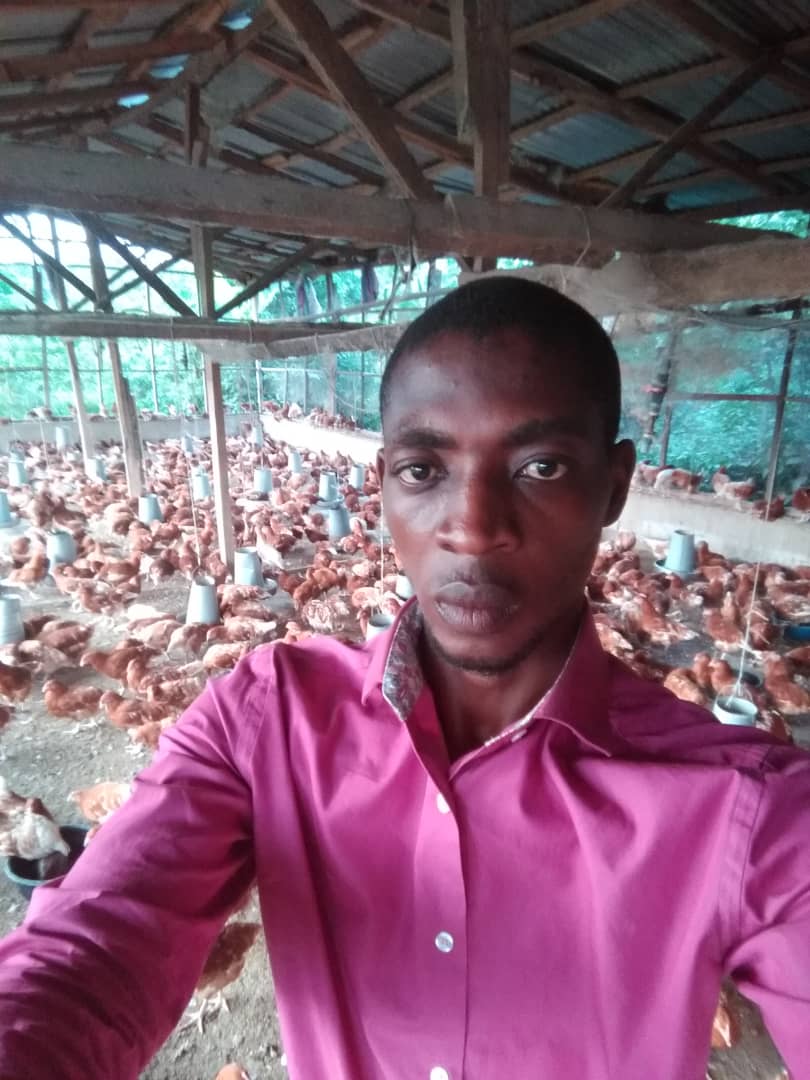
The average age of a Nigerian poultry farmer is just over 40. In the last few years, a large number of even younger Nigerians with tertiary qualifications have entered the industry, who see poultry farming as a profitable venture, and who appreciate the importance of modern technology and the acquisition of skills. They are not only showing a greater appreciation of better waste management practices but are also managing their waste profitably.
Although many poultry farmers are deploying modern technology in their operations, a good number have fallen behind in the sound disposal of waste. Most of the waste material – including droppings, dead birds from mortalities, hatchery waste, litter, offal, water from processing waste and bio-solids – are burnt, dumped in pits and wastelands or flushed into streams and other bodies of water. A 2016 study, Livestock management practices in Oyo State by Abiola and Olaogun, found that the “larger percentage of the farms do not have and environmentally friendly animal waste management system, and the implication is widespread air, water and land pollution”. Walter Abiola, an environmental impact consultant, says that “it is unacceptable that the farms here are modern operations, run by graduates, yet do not manage their wastes properly.”
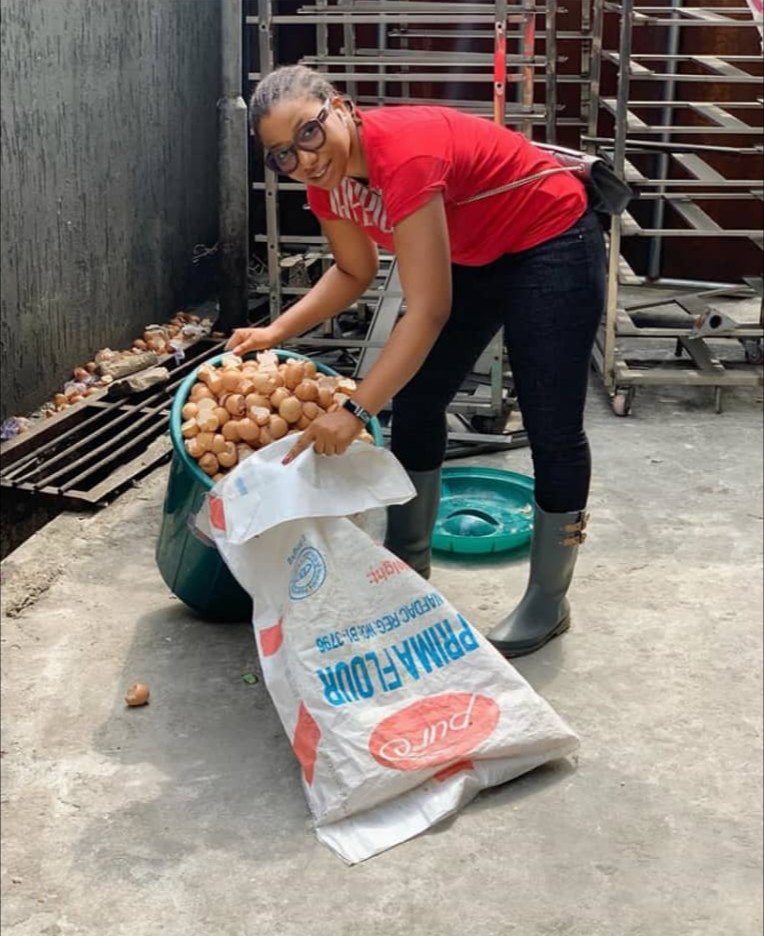
There are clear signs that this situation is changing. Many young farmers appreciate the link between sound environmental management and good-quality products. Emmanuel Akintola, CEO of Y2F Farms, a sizeable enterprise, says that poultry waste presents an opportunity to increase profits. It is possible, he says, to earn good money by processing waste for sale. Many young farmers are taking advantage of this, he says.
Ogochukwu Maduako has recently gained popularity as a prominent recycler in Nigeria. She holds a degree in agricultural economics and extension from Abia State University and an MSc in international economics from Rivers State University, and in 2017 she formed a company, Ingenious Farm (iFarm), to buy eggshells from poultry hatcheries, and other commercial users of eggs, for processing. Since then, she has processed hundreds of tonnes of eggshells into fertilizer and calcium supplement for snails and layers, which she has sold to 50 agricultural enterprises. She is also producing scouring powder and has a few other products on the way. She describes the eggshell as a “multipurpose goldmine,” and is committed to creating many jobs across Nigeria.

Her main challenge is trying to change people’s attitudes and habits in a traditional society. “It’s not easy trying to sell a new idea to a market that is used to an old, existing idea.” She sees a bright future for her company. “iFarm is certainly going global. The recycling of eggshells is not just a challenge we face here in Nigeria but rather it is a challenge faced by other countries. We are open to discussions from potential partners in neighbouring countries and elsewhere.”
Benedicta Aigiomawu CEO of Westlands Agro Farms, believes that although poultry waste has posed an environmental problem in the past, it now presents good opportunities. “Quite a number of farmers are processing their waste for sale to crop farmers,” she says. “A significant number of farmers also sell waste products to fish farmers.”
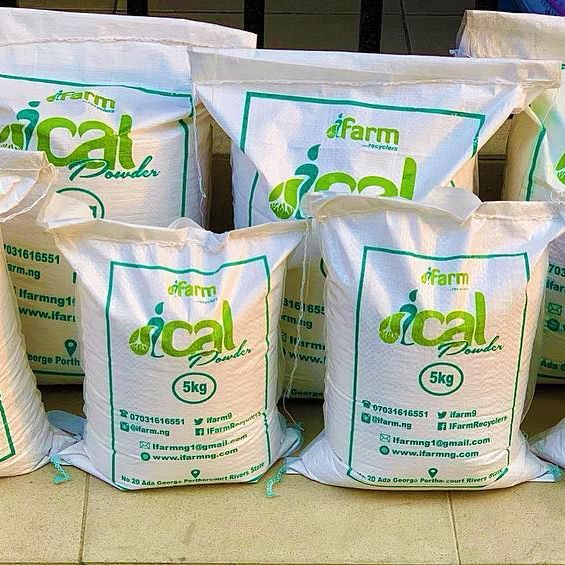
Benedicta, who also runs Profitable Poultry Farming Nigeria, an online platform for poultry farmers and industry professionals, says: “These days, poultry waste presents an opportunity for making money.” Some poultry farmers, she says, use their waste to breed feed supplements like maggots for sale to fish farmers. A 2011 studyby S. O. Ayoola found that ‘poultry hatchery waste can best be utilized when formulated with compounded feed at a ratio of 25% to 75%’. In livestock Wastes: Fish-Weslth Creation (Conference: Water Resources Management 2011, A. A. Adeumi, I. K. Adewumi and V.F. Olaleye propose that poultry and other livestock wastes can support aquaculture.
Yemi Adesina, a prominent livestock farmer based in Ibadan who runs training courses in West Africa, says that sound waste-management practice has arrived in Ibadan at just the right time. “Many large livestock farms were located on the outskirts of Ibadan, where they did not pose much of a threat,” he explains. “Today, due to increased building activity, these areas are closing up, and poultry and poultry waste products could have polluted rivers and lakes and water supply systems. Thankfully, good waste management practices are becoming the norm. We even have a few enterprises that are processing poultry manure into pelletised feed for fish.”
Poultry farming in Ibadan and its environs, which accounted for a substantial part of national poultry output, was historically done without much regard for sound waste management. Fortunately, in the last few years poultry farmers have been seeking to make extra income from their waste, and innovative entrepreneurs like Ugochukwu Maduoko are making sure that waste is put to the best possible uses, both for the environment and the economy.








